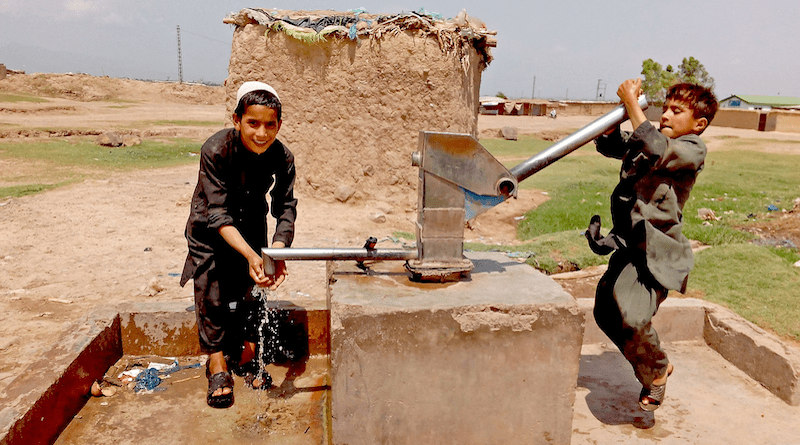Debunking Misconceptions: Pakistan’s Handling Of Afghan Refugees – OpEd
Pakistan has a long history of hosting Afghan refugees who have fled conflict in their homeland. Over the years, the country has provided shelter, aid, and support to millions of Afghan nationals, reflecting its commitment to humanitarian principles and international agreements. However, there is a persistent misconception and propaganda that suggests Pakistan is indiscriminately deporting all Afghan refugees. This article seeks to clarify that Pakistan is taking action against only illegal Afghan refugees while continuing to accommodate those who have sought refuge through legal channels.
Pakistan’s role as a host to Afghan refugees dates back several decades. Since the Soviet invasion of Afghanistan in 1979, millions of Afghan nationals have crossed the border into Pakistan to escape violence and instability in their homeland. Pakistan responded by establishing refugee camps and providing essential services to accommodate their needs. This historical commitment demonstrates Pakistan’s dedication to humanitarian values and its willingness to assist those in need.
Registered Afghan refugees in Pakistan have a well-defined legal status and rights. The United Nations High Commissioner for Refugees (UNHCR) has played a crucial role in the registration and protection of these refugees. The presence of the UNHCR ensures that Afghan refugees in Pakistan are afforded the protections and services guaranteed under international refugee law. This includes access to education, healthcare, and the ability to work legally within Pakistan.
Misconceptions About Deportations
The misconception that Pakistan is indiscriminately deporting Afghan refugees arises from various sources, including misinformation and propaganda. These sources often fail to distinguish between illegal and legal Afghan refugees, leading to the false belief that all Afghan refugees are being deported. The motivations behind spreading such misconceptions can vary but may include political, ideological, or sectarian interests.
It is essential to clarify that Pakistan’s policy pertains to the repatriation of illegal Afghan refugees. Pakistan has made a clear distinction between illegal and legal refugees in its policies. While registered Afghan refugees are protected and supported, those who have entered the country illegally or engaged in unlawful activities are subject to deportation. This differentiation underscores Pakistan’s commitment to the rule of law and its effort to address any illegal activities that may be occurring among certain individuals.
Pakistan’s approach to Afghan refugees is firmly grounded in humanitarian principles. The country is dedicated to respecting the human rights and protecting the vulnerable populations within its borders. Despite the challenges of hosting a substantial Afghan refugee population, Pakistan has consistently upheld its humanitarian obligations. International cooperation and assistance are essential to managing the situation effectively and ensuring the well-being of all refugees.
Case Studies: Legal and Illegal Afghan Refugees
To illustrate the distinction between legal and illegal Afghan refugees, it is worthwhile to examine real-life examples. Legal Afghan refugees in Pakistan have integrated into society, contributing to the country’s culture and economy. They have started businesses, found employment, and sent their children to schools, demonstrating that Pakistan’s approach has allowed them to rebuild their lives with dignity. On the other hand, there are instances of Afghan nationals who have engaged in illegal activities, including criminal behavior. In these cases, deportation is a necessary step to maintain law and order.
To address the issue of illegal border crossings, it is vital to understand the factors that drive Afghan nationals to undertake such risks. A combination of economic hardship, insecurity, and the desire for a better life leads some individuals to cross the border without proper documentation. Pakistan recognizes the need to work collaboratively with international partners to promote stability and peace in Afghanistan. By addressing the root causes of migration and fostering a more secure environment in Afghanistan, it is possible to reduce the flow of illegal refugees.
The role of media and communication in shaping public perception cannot be underestimated. To counter misinformation and propaganda, it is crucial to promote accurate information about Pakistan’s treatment of Afghan refugees. Accurate reporting can help dispel false narratives and correct misconceptions, fostering a more informed and nuanced discussion around this complex issue. It is the responsibility of governments, non-governmental organizations, and the media to ensure that the public receives accurate and balanced information.
Conclusion
Pakistan has a long history of accommodating Afghan refugees and has been a dedicated partner in addressing the Afghan refugee crisis. While there is ongoing misinformation and propaganda that portrays Pakistan as indiscriminately deporting all Afghan refugees, the reality is quite different. Pakistan continues to support and protect registered Afghan refugees, offering them access to essential services and opportunities for a better future. The deportation policy primarily targets illegal refugees and those involved in unlawful activities, in accordance with the rule of law. It is essential for the international community to recognize Pakistan’s humanitarian efforts in this regard and to work collectively to address the root causes of migration and promote peace and stability in Afghanistan. By countering misinformation and propaganda with accurate information, we can foster a more informed and empathetic understanding of the complexities surrounding Afghan refugees in Pakistan.

